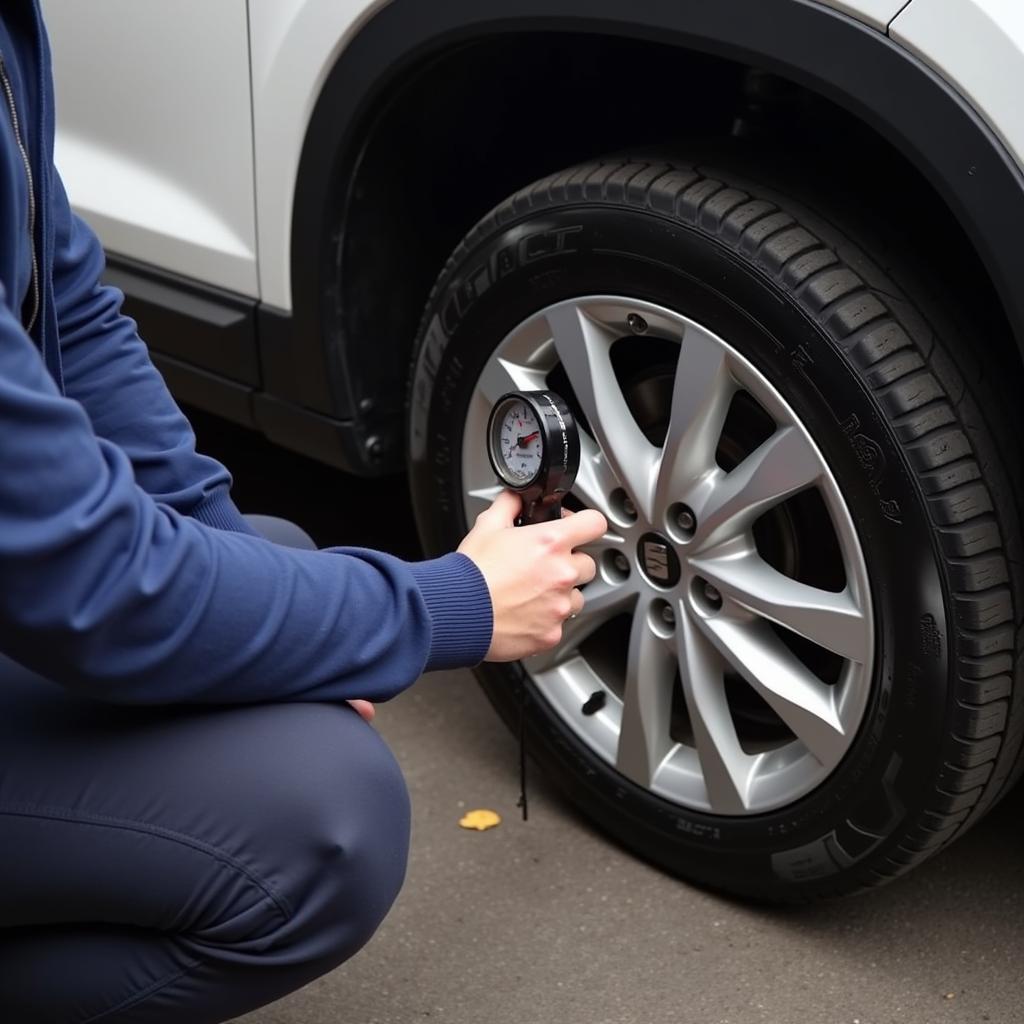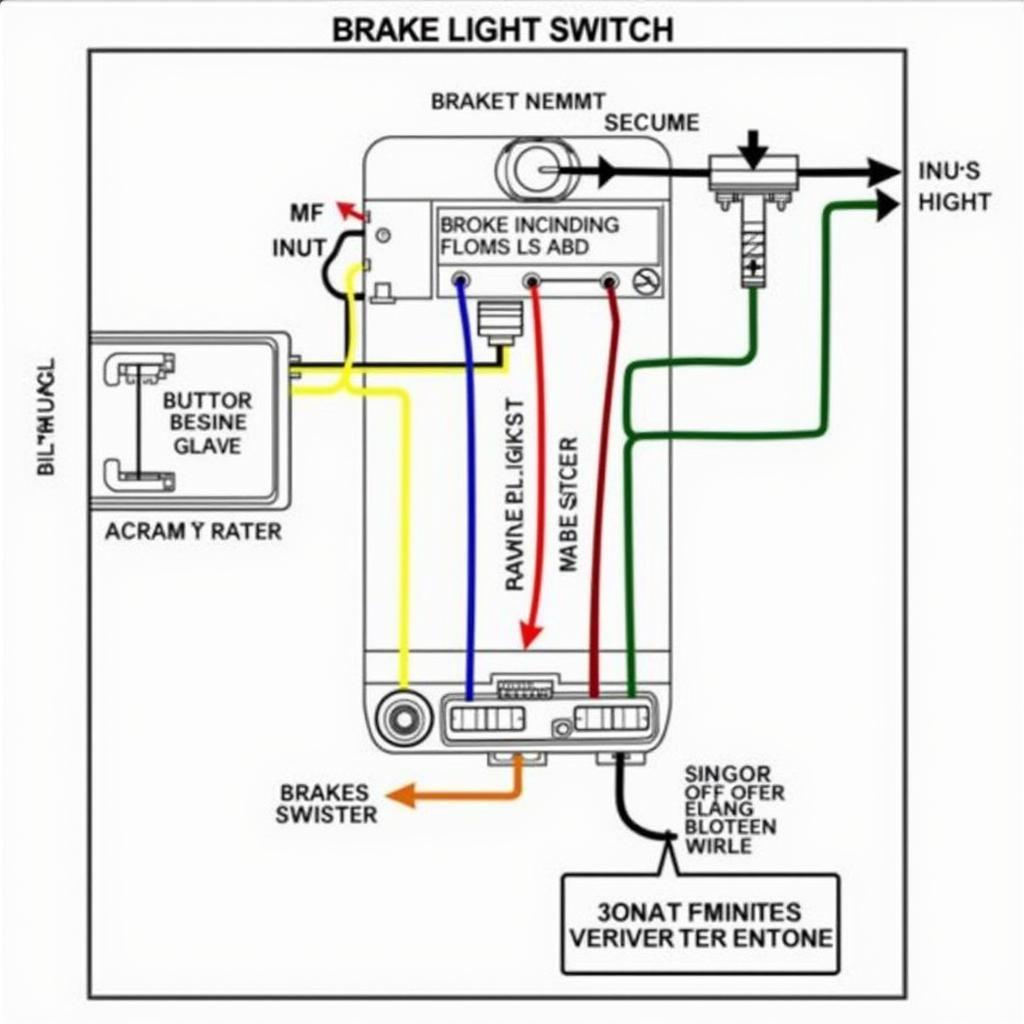The dreaded Audi Q7 brake warning light can be a source of anxiety for any driver. Understanding what triggers this light, and how to address the issue, is crucial for both your safety and peace of mind. This guide dives into the common causes of the brake warning light in your Audi Q7 and provides solutions for troubleshooting and resolving the problem.
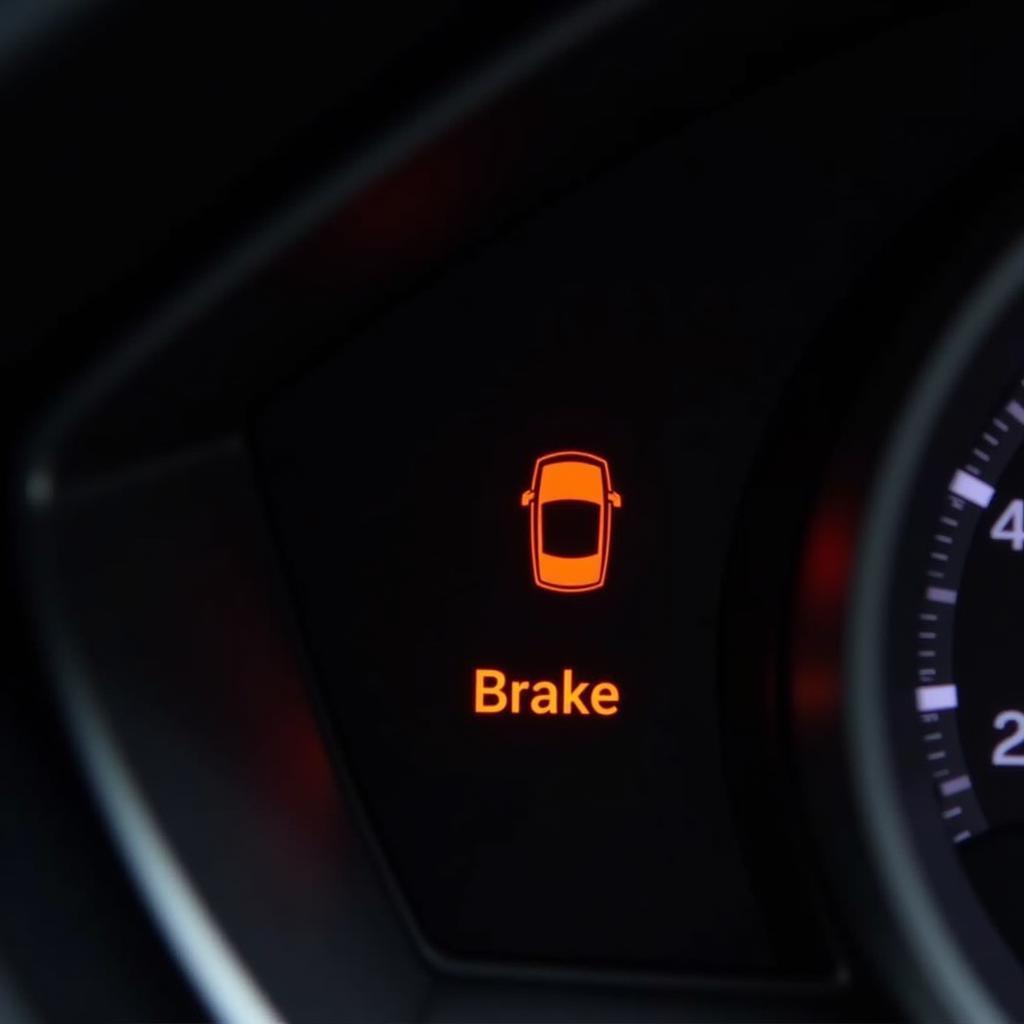 Audi Q7 Brake Warning Light Illuminated on Dashboard
Audi Q7 Brake Warning Light Illuminated on Dashboard
Understanding Your Audi Q7’s Brake System
Your Audi Q7’s brake system is a complex network of components working together to ensure safe and efficient stopping power. From the brake pedal to the brake pads, every part plays a vital role. The brake warning light is your car’s way of communicating potential issues within this system. These issues could range from low brake fluid to worn brake pads or even more serious problems with the ABS system. Knowing the basics of your braking system can help you better understand why the warning light might be on.
2008 audi q7 brake light warning
Common Causes of the Brake Warning Light
Several factors can trigger the brake warning light in your Audi Q7. Let’s examine some of the most frequent culprits:
- Low Brake Fluid: This is the most common cause. Brake fluid levels decrease naturally over time, but a sudden drop can indicate a leak, which needs immediate attention.
- Worn Brake Pads: Your brake pads have wear sensors that trigger the warning light when they reach a certain thickness. This is a normal part of maintenance, and replacing the pads should resolve the issue.
- Faulty Brake Sensor: While designed for durability, brake sensors can sometimes malfunction and trigger the light even when the brake pads are fine.
- ABS Issues: The Anti-lock Braking System (ABS) is a crucial safety feature. If there’s a problem with the ABS module, a sensor, or the wiring, the warning light might illuminate.
brake warning light on dash audi q7
Why is my Audi Q7 brake warning light on?
The brake warning light on your Audi Q7 is a signal that there might be an issue with your braking system, such as low brake fluid, worn brake pads, or a problem with the ABS.
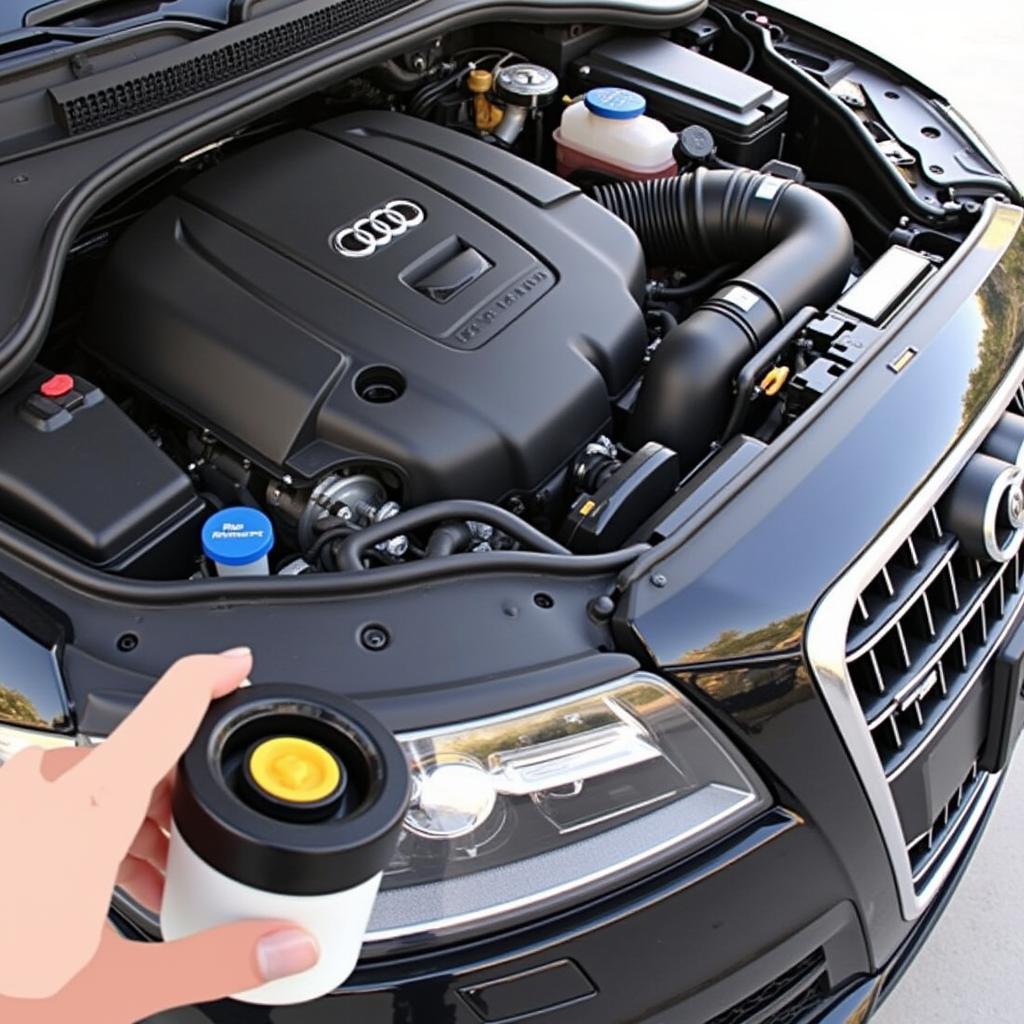 Checking the Brake Fluid Reservoir in an Audi Q7
Checking the Brake Fluid Reservoir in an Audi Q7
Troubleshooting the Brake Warning Light
Before rushing to a mechanic, you can perform some basic checks yourself:
- Check the Brake Fluid Level: Locate the brake fluid reservoir and check if the fluid level is between the minimum and maximum marks.
- Inspect the Brake Pads: Visually inspect your brake pads through the wheel spokes. If they appear excessively thin, they likely need replacing.
- Check for Leaks: Look for any signs of brake fluid leaks around the brake lines, calipers, and master cylinder.
audi q7 brake warning light reset
How can I reset the Audi Q7 brake warning light?
Reseting the brake warning light typically involves addressing the underlying issue, such as topping off brake fluid or replacing worn brake pads. In some cases, a diagnostic scan tool may be required.
“Regular brake maintenance is essential,” says automotive expert John Miller. “Ignoring the brake warning light can lead to costly repairs and compromise your safety.”
Remote Diagnostics and Software Solutions
Modern automotive technology allows for remote diagnostics and software installations that can sometimes address specific brake system issues. This can be a convenient option for resolving certain problems, particularly software-related glitches within the ABS system.
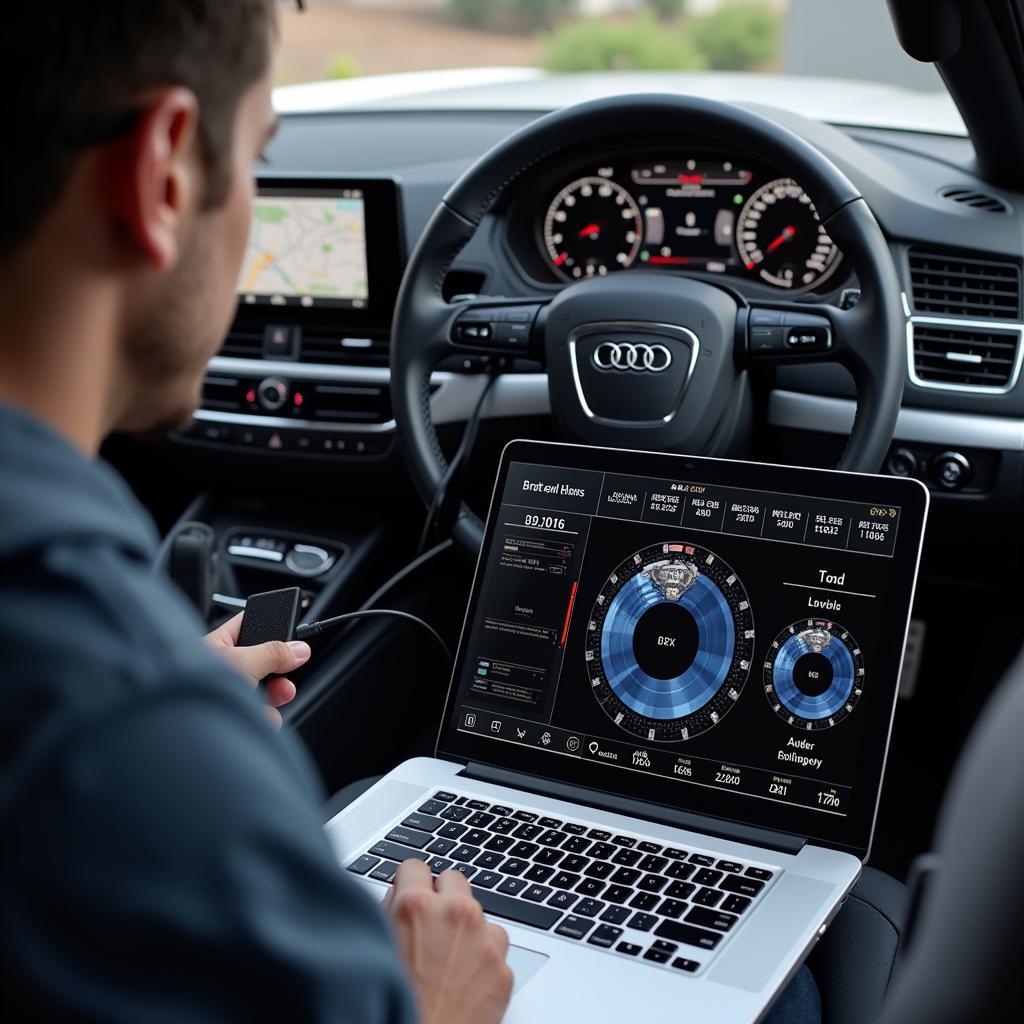 Remote Diagnostics for Audi Q7 Brake System
Remote Diagnostics for Audi Q7 Brake System
Can remote diagnostics fix my Audi Q7’s brake warning light issue?
While remote diagnostics can identify some brake system problems and even fix software-related issues, physical problems like worn brake pads or fluid leaks will still require hands-on repairs.
“Remote diagnostics can be a valuable tool for identifying the root cause of the warning light,” adds Sarah Chen, a specialist in automotive software. “This can save time and money by pinpointing the exact issue.”
audi q7 brake pad warning sensors good
When to Seek Professional Help
If your initial checks don’t reveal an obvious problem, or if you’re uncomfortable working on your brakes, it’s time to consult a qualified mechanic. Brakes are a critical safety system, and attempting complex repairs without proper knowledge and tools can be dangerous.
Conclusion
The Audi Q7 brake warning light is a crucial safety indicator. Addressing the underlying issue promptly is vital. While some basic troubleshooting can be done at home, don’t hesitate to seek professional help if needed. Ensuring your brake system is in optimal condition is paramount for your safety and the safety of others on the road. Remember to prioritize regular maintenance and address any warning lights immediately to keep your Audi Q7 running smoothly and safely.
FAQ
- Is it safe to drive with the brake warning light on? It’s not recommended. The light indicates a potential problem, and continuing to drive could be dangerous.
- How often should I check my brake fluid? Check your brake fluid level at least once a month.
- How much does it cost to replace brake pads on an Audi Q7? The cost varies depending on the type of pads and labor rates, but expect to pay several hundred dollars.
- What is the difference between the brake warning light and the ABS light? The brake warning light indicates a general brake system issue, while the ABS light specifically relates to the anti-lock braking system.
- Can I top off my brake fluid myself? Yes, but use only the correct type of brake fluid recommended for your Audi Q7.
- How long do brake pads typically last? Brake pad lifespan varies depending on driving habits and conditions, but typically they last between 30,000 and 70,000 miles.
- What could cause a sudden drop in brake fluid level? A leak in the brake lines, calipers, or master cylinder is the most likely cause.

